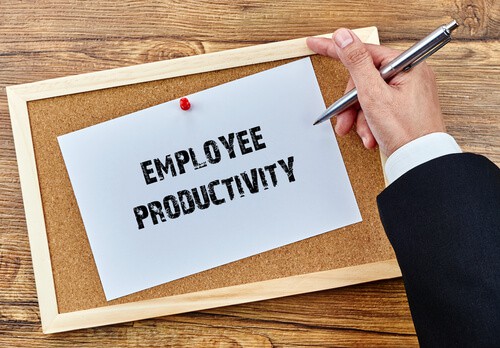A new study from Staples found that more than 85 percent of employees believe taking regular breaks during the day would make them more productive. However, more than a fourth of workers overall don’t take a break other than lunch. One in five of these employees claim guilt of not working is the reason they don’t take breaks, while 55 percent said they don’t feel they can leave their desk in order to take a break.
John Trougakos, an associate professor of management at the University of Toronto, says that job-related stress is a major detriment of employee productivity. A leading cause of job-related stress comes from overworking the brain.
The Staples’ study found that breaks can prevent employees from feeling burned out:
- 59 percent of those surveyed believe more breaks would improve their work happiness
- 43 percent said it would boost their personal happiness
- 37 percent claimed regular breaks during the day would improve their health.
With a boost in work happiness, personal happiness, and overall health, it’s highly likely that a boost in employee productivity will develop as well—and Trougakos’ study is an indication of that. It found that people who engage in respite activities during their work breaks have higher levels of positive effect, measured by observable expression of emotion, after their breaks.
And John Trougakos isn’t the only one coming to these conclusions. Dan Sullivan, co-founder of Strategic Coach, and Allison Gabriel, assistant professor of management at Virginia Commonwealth University, also have something to say about mental fatigue in regards to employee productivity.
Gabriel says, “The brain is like a muscle. You can strengthen it or deplete it. If you let this muscle recharge and replenish, you’ll feel better mentally and see improvements in your performance.” Sullivan states, “It’s not about the amount of time you spend working each day. You can create a solution in a shorter period of time if you are well-rested and rejuvenated.”
One study found that three hours of continuous time on a task can lead to mental fatigue and, therefore, a decline in employee productivity. Many scientists believe the brain needs a break after 90 minutes, which is considered the length of the “basic rest-activity cycle.”
“Disconnecting from work can do wonders for people’s energy and mindset,” Trougakos says. Both energy and a positive mindset are necessary for effective productivity. The next time your team seems to be a bit sluggish and lacking productivity, it may just be time for a break.
Contact Talexes today for more solutions for your workforce!




